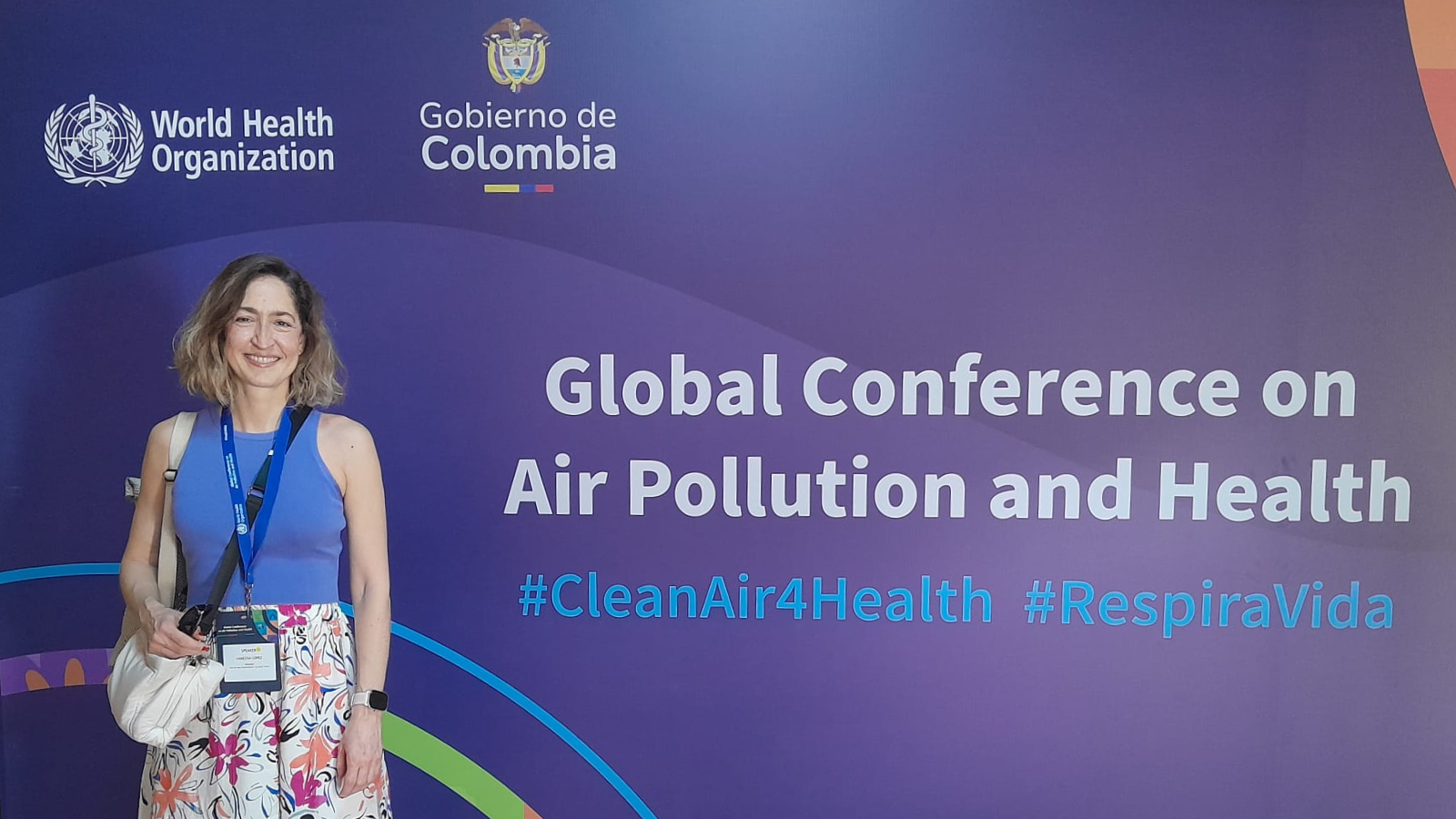Air pollution remains the largest environmental health risk for people in the EU, and more action to tackle it at the source is urgently needed, according to the 2025 edition of the Air Quality Status report by the European Environment Agency (EEA). As more health protective clean air standards will apply as of 2030, HEAL urges national and city authorities to step up on clean air measures, as progress has been too slow.
7 September 2020 marks the first ever International Day for Clean Air and Blue Skies, organised by the United Nations (UN). HEAL works with members and partners in over 15 cities across Europe: Under the theme Our Healthy City of Tomorrow we set out actions that cities can take around transport, green areas, to improve health and achieve clear air for all and move ahead on climate action.
Air pollution is the single greatest environmental health risk and one of the main causes of death and disease globally. Children are the most vulnerable to polluted air, carrying a risk for lifelong consequences. Poor air quality is also a leading risk factor for major chronic diseases in adults, including heart and lung disease as well as cancer.
The evidence-base is clear: Air pollution affects our health. There is no such thing as a safe level and it is entirely preventable!
Opportunities for clean air in cities
As a 2018 WHO report showed, the world’s cities are also its hotspots for air pollution, as in 90% of cities the air quality is considered harmful to health. Consequently, cities and their leadership, including mayors, play a crucial part in air pollution prevention. The spring and summer of 2020 have presented many cities with an additional lesson: the lockdowns enforced as a result of the global COVID19 pandemic forced cities to rethink their infrastructure and offer more options for moving outdoors and traveling by foot or bike. As a result, 68% of Europeans want their cities to stay car-free and pedestrian-friendly post COVID, as one poll finds.
Investments in green city infrastructure are investments in the health of citizens, as they do not only contribute to cleaner air but also often in and of themselves benefit health, such as the potential positive impact on obesity and heart disease through more opportunities for safe cycling or walking.
What needs to happen?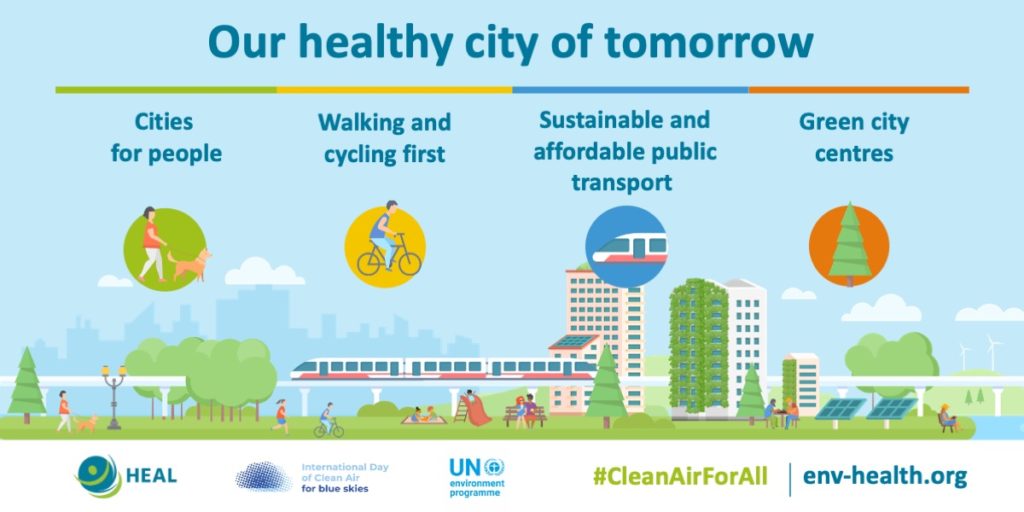
Cities for people
Cities should belong to people, not cars – they need to be built for people. Reducing car use is good for health, productivity, urban liveability and the economy.
We want
- Car free city centres with green spaces and mostly pedestrianised areas
- Urban planning and design that offers car-free mobility for work and leisure
Walking and cycling first
Walking and especially cycling are a great way to get around in cities, benefits health through physical activity and public health through pollution reduction.
We want
- Expansion of safe cycling lanes in and around the city centre including bicycle highways
- Pedestrian-friendly city: move safely, barrier-free and comfortably in the city, with attractive views and opportunities to move and play
Sustainable and affordable public transport
Car free cities need reliable, affordable and green public transportation (options). Smart and sustainable transport systems improve air quality and benefit health and the climate.
We want
- Reliable, accessible, affordable and fossil-fuel-free public transport alternatives for all
- Free public transportation for all in and around city centers
Green city centres
Urban green spaces can promote mental and physical health, and reduce morbidity and mortality, with relaxation and stress reduction, social connections, physical activity. They also reduce air pollution, noise and excessive heat.
- Expansion of green and wild areas such as parks, community gardens or facade planting
- Meaningful offers for sports, play and recreation for all ages such as playgrounds and free outdoor workout spots
For Clean Air Day 2020, we also work closely with our partners across Europe:
Brussels (Belgium)
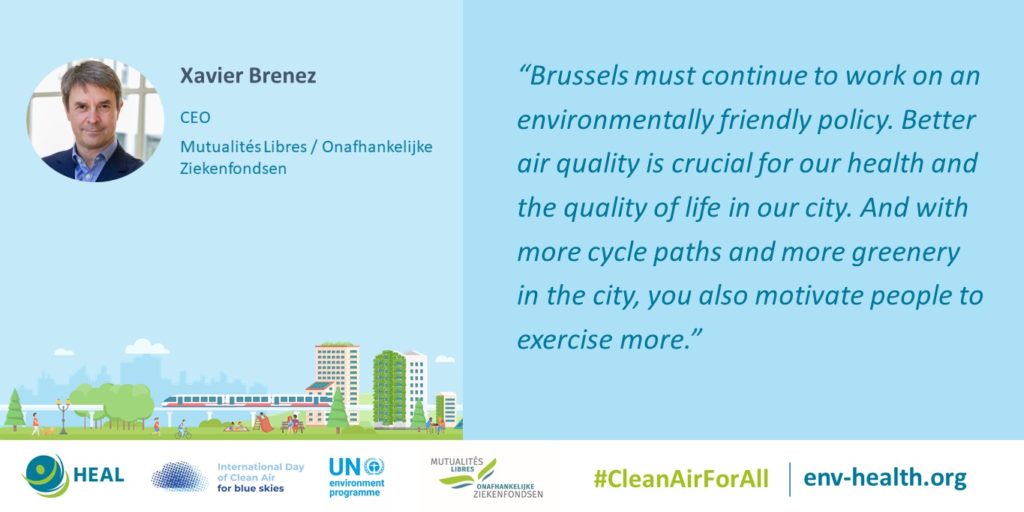
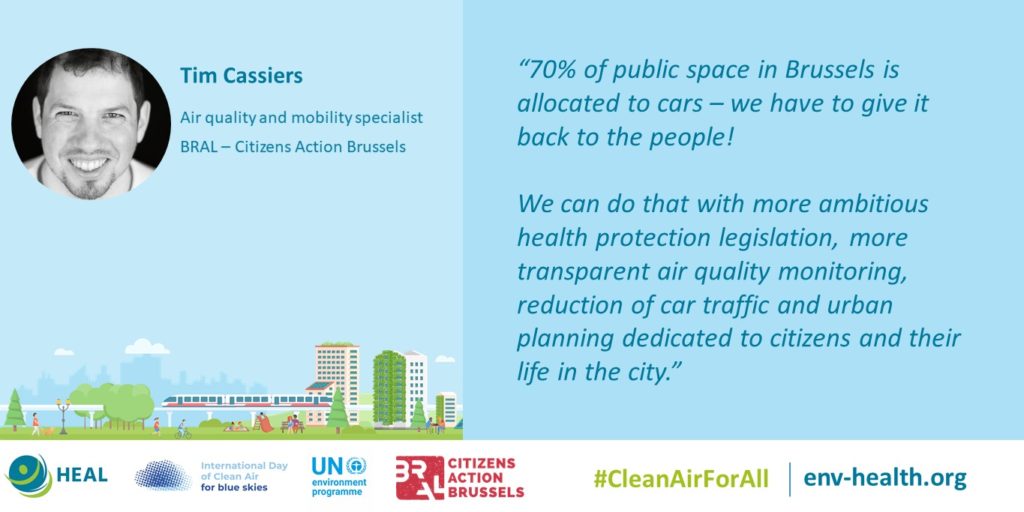
Gdansk (Poland)
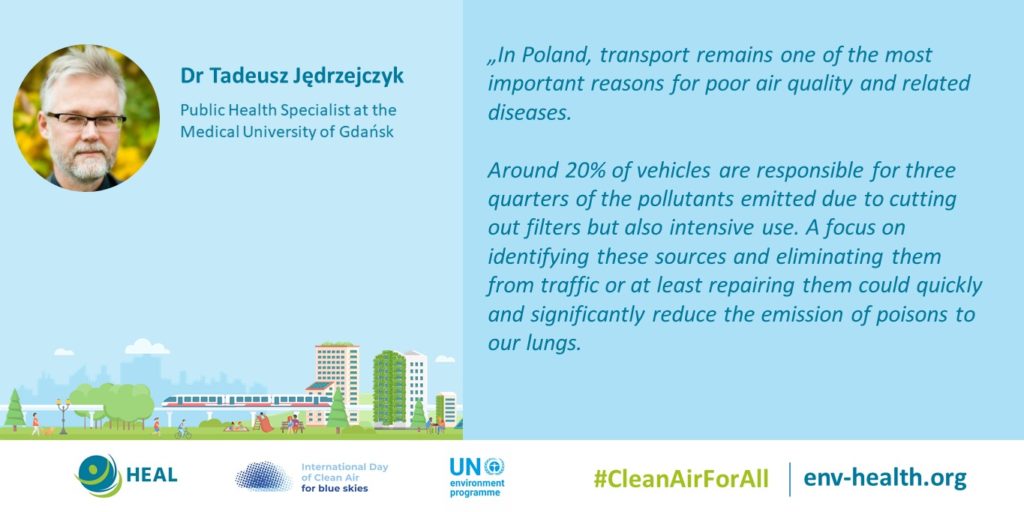 Sofia (Bulgaria)
Sofia (Bulgaria)
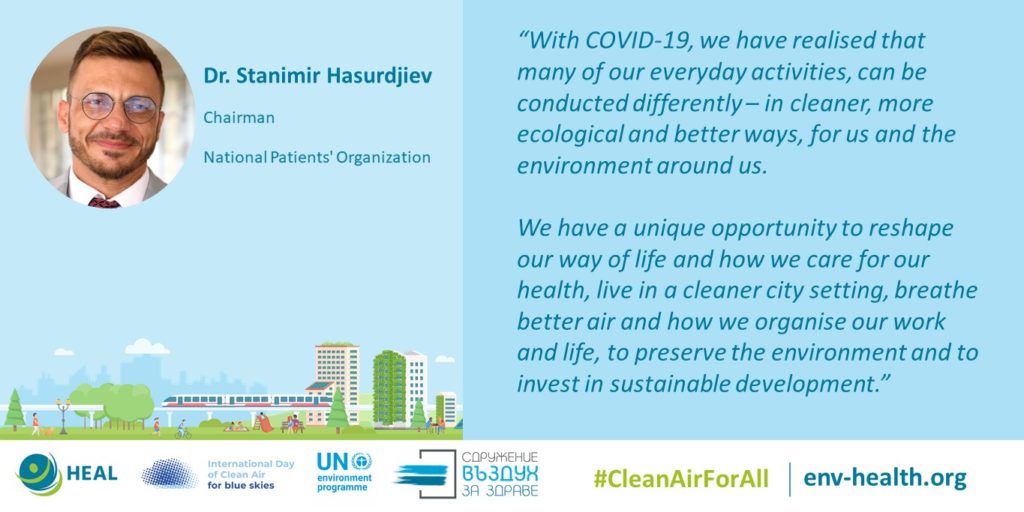 Madrid (Spain)
Madrid (Spain)
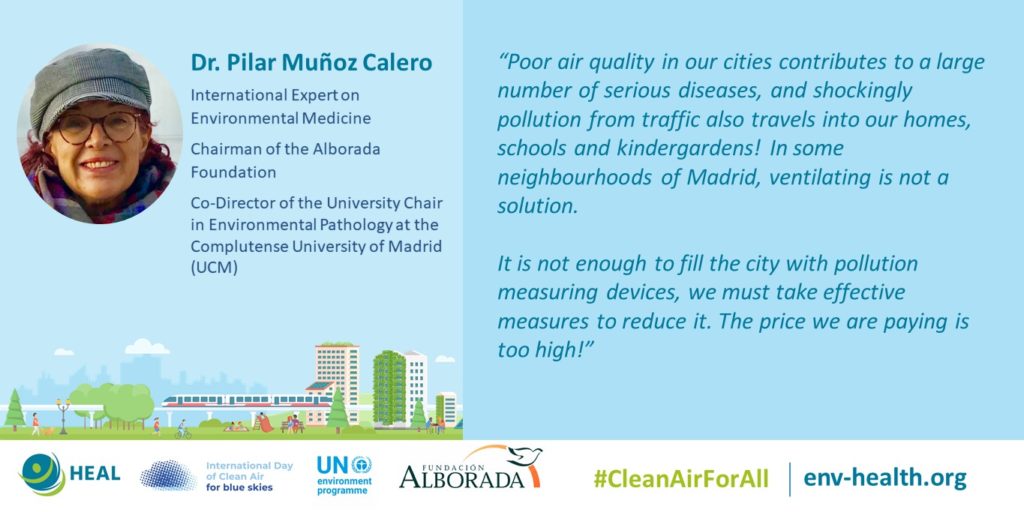
London (UK)
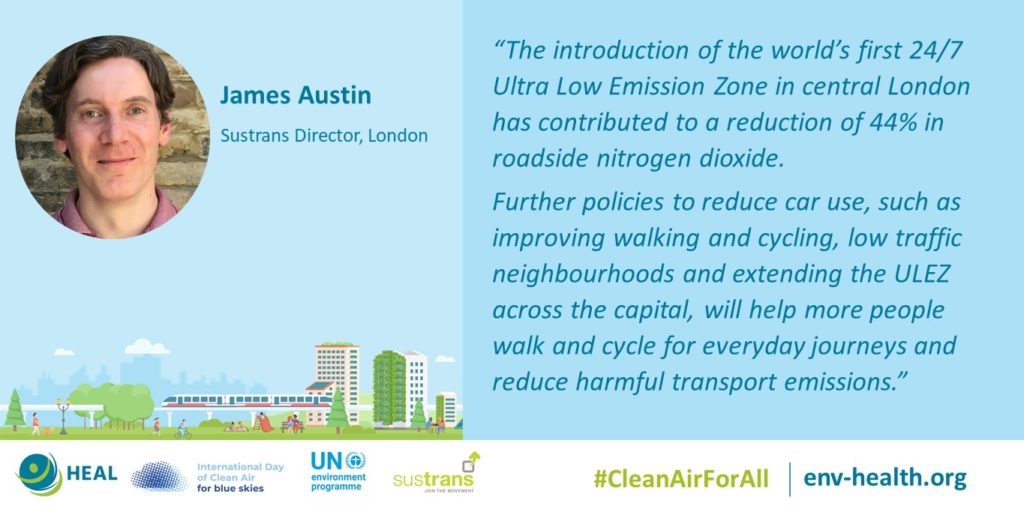
Porto, Lisbon (Portugal)
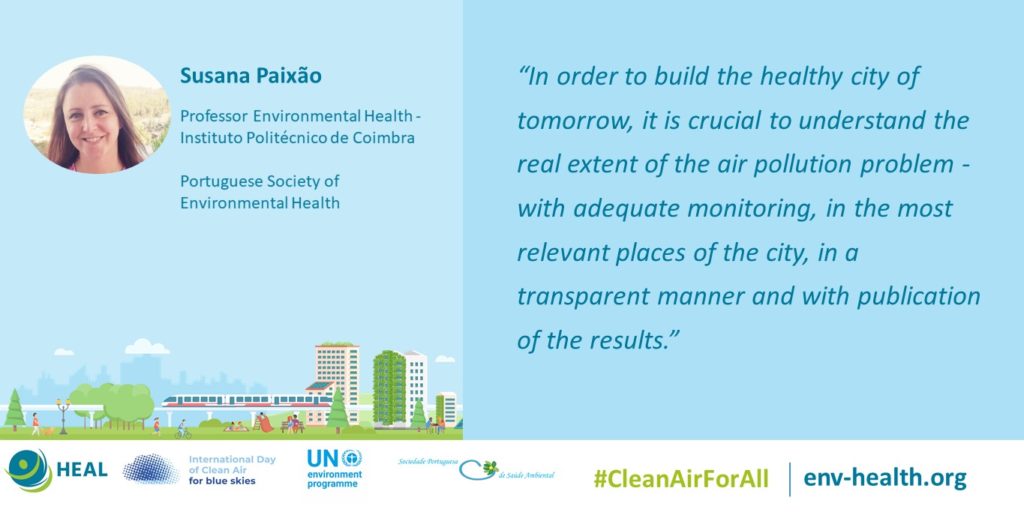

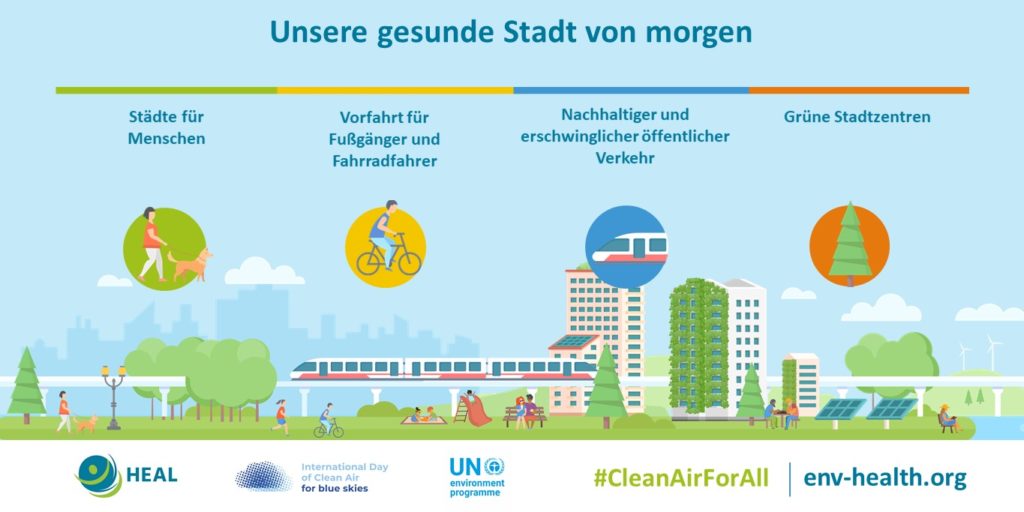
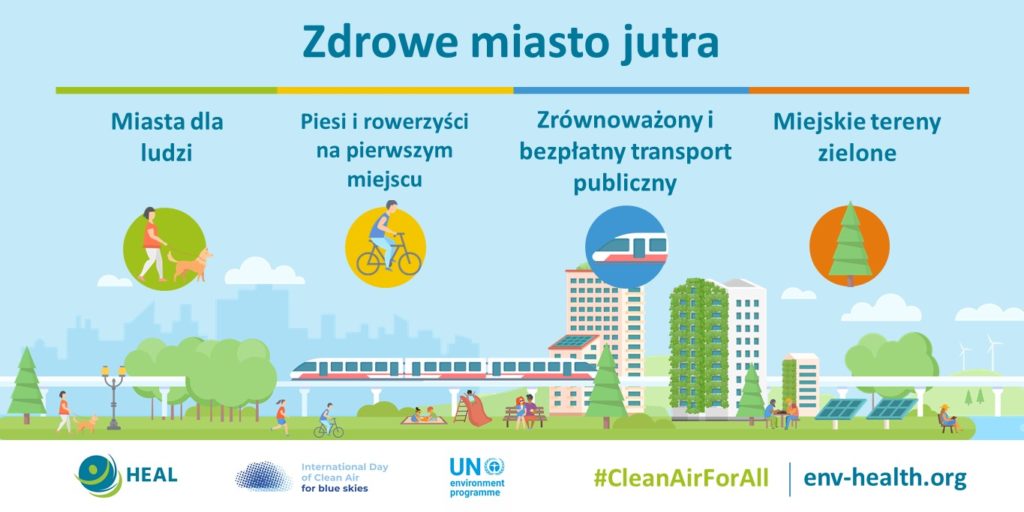
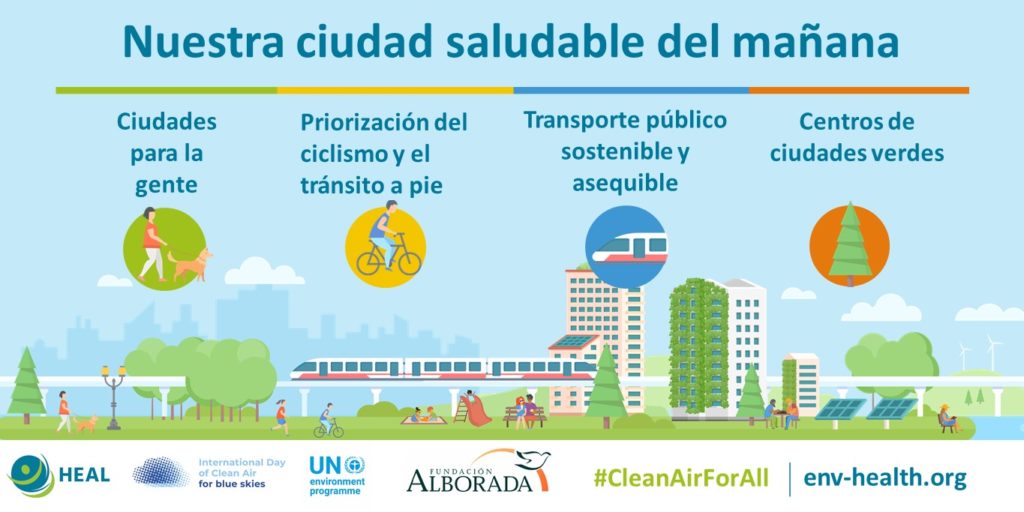 All four demands here!
All four demands here!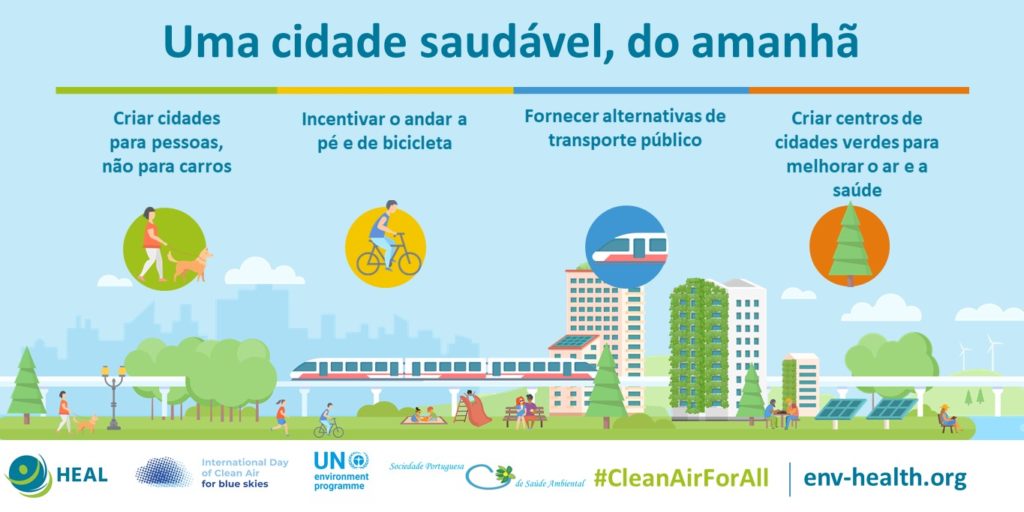 Full infographic here!
Full infographic here!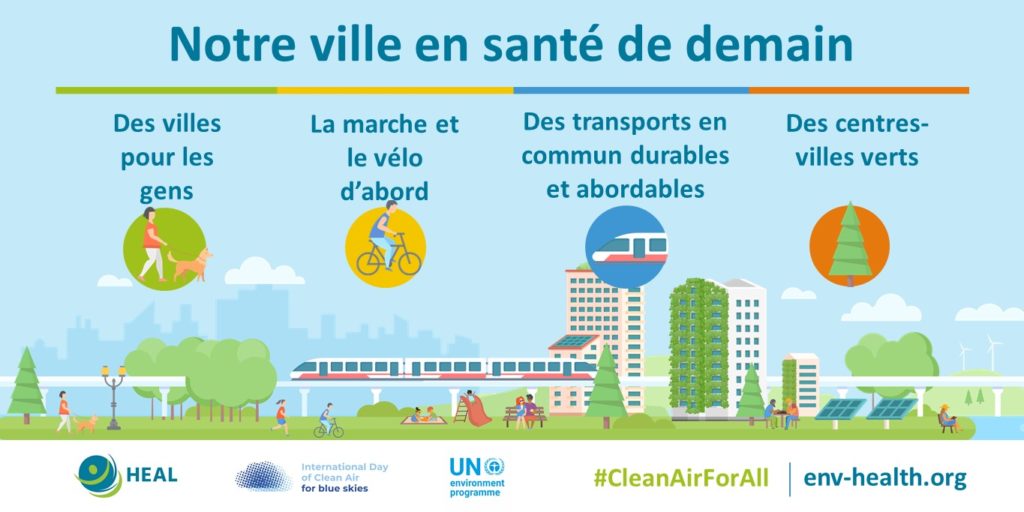 Full infographic here!
Full infographic here!